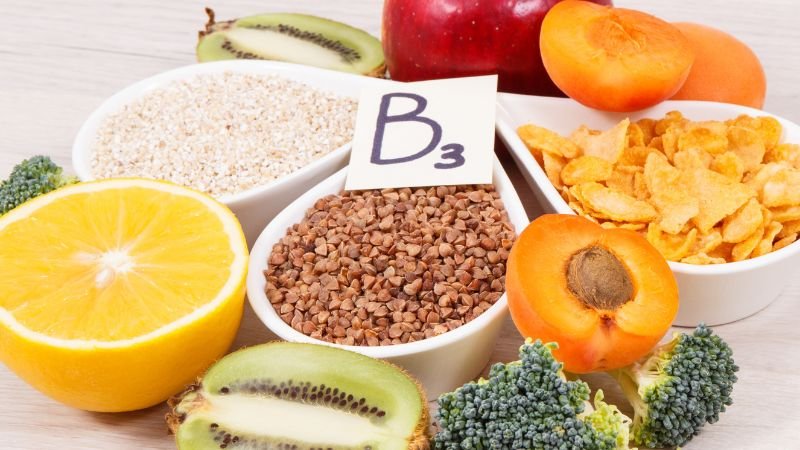Ingredient
Vitamin B3 (Niacin): Essential Support for Energy Transfer and Cellular Communication
Vitamin B3, known as Niacin, is a water-soluble vitamin that is fundamental to virtually every major metabolic process in the body. It exists in two primary forms—Nicotinic Acid and Niacinamide—and is critically involved in converting food into energy and facilitating cellular repair mechanisms.
1. The Core of Cellular Energy
The most vital function of Niacin is its role as a precursor to two essential coenzymes: NAD (Nicotinamide Adenine Dinucleotide) and NADP (Nicotinamide Adenine Dinucleotide Phosphate).
NAD and Energy Transfer
NAD is critical for transferring energy from the food we eat to the powerhouses of our cells (the mitochondria). This process is central to metabolic efficiency and supports sustained energy levels for overall physical vitality.
Supporting Healthy Lipid Metabolism
Niacin supports healthy lipid (fat) metabolism, aiding the body in efficiently breaking down and utilizing fats. This action is crucial for maintaining healthy cholesterol levels already within the normal range.
2. Promoting Skin and Nervous System Integrity
Beyond energy, Vitamin B3 is indispensable for supporting the health and maintenance of various structural systems.
- Dermal Integrity: Niacinamide, a form of B3, supports the skin’s barrier function, helping to maintain moisture retention and promote healthy skin appearance.
- Cellular Signaling: NAD is involved in cellular signaling pathways that support DNA repair and cellular communication. This action reinforces cellular protection and renewal against daily stressors.
- Neurological Wellness: By ensuring consistent energy supply to the brain and assisting in the synthesis of neurotransmitters, Niacin contributes to healthy cognitive function and overall nervous system health.
Key Takeaways for Supplementation
| Feature | Function |
|---|---|
| Primary Benefit | Coenzyme Production and Energy Transfer |
| Compliance Focus | Supports Structure and Function (Not a Treatment) |
Explore Deep Dive Articles
- Advanced Cellular Protection & Systemic Defense: Nurturing Health at the Core
- Metabolic & Cardiovascular Health: Supporting Optimal Energy and Circulation
- Cognitive & Musculoskeletal Vitality: Supporting Mind, Nerve, and Movement
Disclaimer: This article provides nutritional information and is not intended to diagnose, treat, cure, or prevent any disease.


Recommended Products
Targeted System Defense Bundle
Advanced Digestive Integrity Set
Daily Nutritional Support Kit
Advanced Pulmonary Wellness Kit